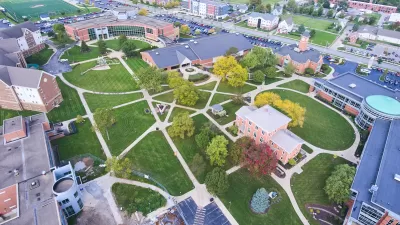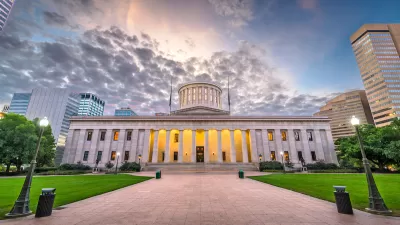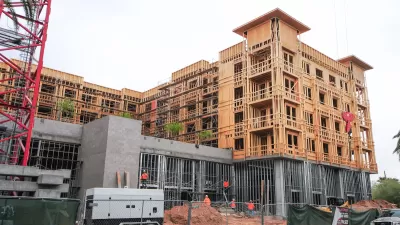Incentivizing development on institutionally owned land could help boost the city’s affordable housing supply.

A new report from the Urban Institute outlines the potential partnerships the city of Nashville could leverage to build more affordable housing.
Report authors Peter A. Tatian, Karolina Ramos, and Gabe Samuels highlight their findings, writing that “promoting and facilitating housing development on land belonging to institutional landowners” could help the city promote more housing development on land owned by institutions such as schools, healthcare facilities, and faith-based groups. “We also analyzed housing development opportunities under both current and alternate zonings, as well as the transit-adjacency of developable parcels (legally distinct pieces of land),” the authors add.
Among the report’s key findings, “Across 1,027 colleges and universities, faith-based institutions, and health care institutions in Metro Nashville, up to 5,539 units could be constructed on 986 parcels under current land availability and zoning laws.” If parcels in commercial and retail areas were rezoned to accommodate residential use, institution-owned properties could create almost 10,000 new housing units.
“Partnering with local affordable housing developers can help institutions with limited experience in housing or community development to maximize underutilized land without bearing sole responsibility for assembling financing, overseeing construction, and managing properties.”
FULL STORY: https://www.urban.org/research/publication/promoting-affordable-housing-partnerships-nashville

Alabama: Trump Terminates Settlements for Black Communities Harmed By Raw Sewage
Trump deemed the landmark civil rights agreement “illegal DEI and environmental justice policy.”

Study: Maui’s Plan to Convert Vacation Rentals to Long-Term Housing Could Cause Nearly $1 Billion Economic Loss
The plan would reduce visitor accommodation by 25% resulting in 1,900 jobs lost.

Planetizen Federal Action Tracker
A weekly monitor of how Trump’s orders and actions are impacting planners and planning in America.

Waymo Gets Permission to Map SF’s Market Street
If allowed to operate on the traffic-restricted street, Waymo’s autonomous taxis would have a leg up over ride-hailing competitors — and counter the city’s efforts to grow bike and pedestrian on the thoroughfare.

Parklet Symposium Highlights the Success of Shared Spaces
Parklets got a boost during the Covid-19 pandemic, when the concept was translated to outdoor dining programs that offered restaurants a lifeline during the shutdown.

Federal Homelessness Agency Places Entire Staff on Leave
The U.S. Interagency Council on Homelessness is the only federal agency dedicated to preventing and ending homelessness.
Urban Design for Planners 1: Software Tools
This six-course series explores essential urban design concepts using open source software and equips planners with the tools they need to participate fully in the urban design process.
Planning for Universal Design
Learn the tools for implementing Universal Design in planning regulations.
Caltrans
Smith Gee Studio
Institute for Housing and Urban Development Studies (IHS)
City of Grandview
Harvard GSD Executive Education
Toledo-Lucas County Plan Commissions
Salt Lake City
NYU Wagner Graduate School of Public Service





























